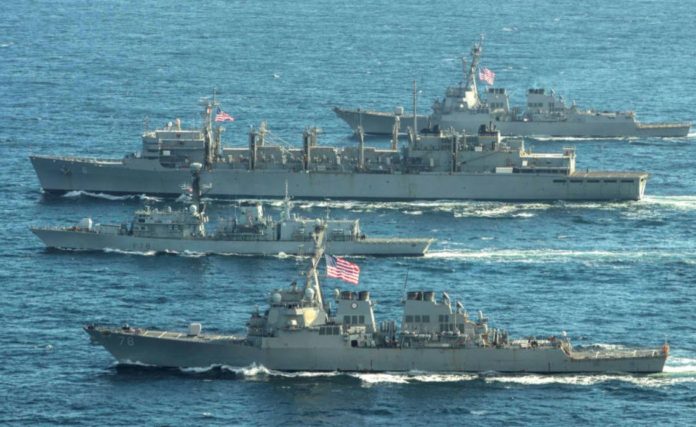The Barents Sea was one of the places where the Cold War was fought for decades. Although it does not have the recognition of the Berlin Wall, the truth is that this place of the world (located in the Arctic, north of Russia and Norway) was the scene of battles and naval actions for much of the twentieth century. In fact, Russia decided to install a good part of its nuclear arsenal for submarines in the area, fearing for its safety.
Now, the United States has sent a fleet back to the area. Decades after the end of hostilities, three destroyers and an American rapid combat support ship have been sailing the Barents Sea since 4 May in a “maritime security operation” joined by HMS Kent, another British warship. But why now?
According to the Pentagon, it is about to “ensure freedom of navigation and demonstrate seamless integration between allies.” But beyond euphemisms, it could be geopolitical strategy movements.
The goal of natural resources
Senior US officials say that they notified Russia of their intentions three days earlier, on May 1, to “avoid misinterpretations, reduce risk and prevent an unexpected escalation.” But analysts consulted by the BBC point out that, beyond those official explanations, behind the decision to return to the Barents Sea there are reasons that have to do with the Russian dominance of the area, access to natural resources and climate change.
David Castrillón, a geopolitical analyst and researcher, notes that in recent years “we have seen a strengthening of Russian force in the Arctic with the construction and modernization of its fleet, especially with the construction of icebreakers to operate in that area. In contrast, the United States has much lower capabilities and old vessels.” A decision that would be due to the search for new natural resources in the area and to secure a position of dominance for the time when the “huge reserves of oil and natural gas” that are supposed to exist in the area appear.
The United States wants to be the dominant energy leader, but Russia has leveraged its wealth in that sector in recent years to influence many European countries. Taking advantage of their gas pipelines, they have gained a position of dominance on the Old Continent, something that Americans are afraid of. That would have led, according to journalist Jonathan Marcus, to a “new ongoing strategic competition for the Arctic, of which this U.S. naval deployment is only a small part.”
And climate change is behind it all: with the thaw, new exploration routes are opened and access to places that, until now, were inhospitable. But Americans and Russians are not the only ones who see the possibilities of the area: according to David Castrillón, “China has already expressed that it has plans in the area. For them, it is a mainly commercial objective and that does not go unnoticed by the United States.” And also Norway, whose proximity to the area makes it the main actor in this game that, according to experts, is “more political than military.”
